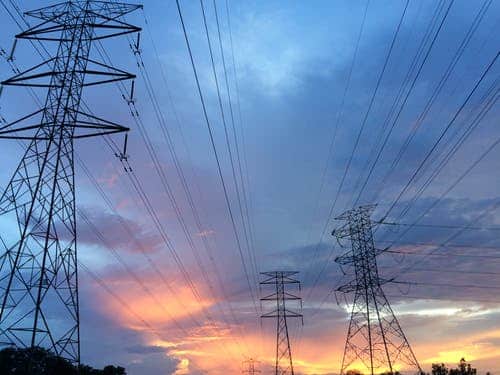New England States Seek Wholesale Power Market Reforms to Support Decarbonization Goals

The governors of five New England states – Connecticut, Maine, Massachusetts, Rhode Island, and Vermont – issued a statement on Oct. 14 calling for reforms to the regional wholesale electricity market structure to support their decarbonization efforts. In light of the states’ commitment to reduce emissions by at least 80 percent below 1990 levels by 2050, the statement underscores the need for a grid capable of supporting the accelerated expansion of clean energy resources.
The states’ vision document, released by the New England States Committee on Electricity, outlines changes needed in three core areas to achieve the region’s carbon-reduction goals: wholesale electricity market design, transmission system planning, and governance of ISO-New England, the regional grid operator.
The current market design is incompatible with certain state laws and mandates concerning resource adequacy and measures related to energy- and climate-related legal requirements, according to the states. Finding that the “wholesale markets fail to sufficiently value the legally-required clean energy investments made by the ratepayers they serve,” the statement recommends a framework based on a minimum set of principles. The framework calls for the use of market-based mechanisms to meet decarbonization goals while maintaining resource cost at the lowest cost, accommodation of long-term contracts for clean energy resources executed under state law, integration of distribution-level resources, permitting participation of interested buyers and sellers, and providing adequate state involvement in market design and implementation.
With regard to transmission, the states noted that ISO-NE currently does not conduct a routine planning process that helps to inform stakeholders of transmission infrastructure needs to cost-effectively integrate clean energy resources and distributed resources across the region. To address this, the statement recommends a framework for comprehensive long-term regional transmission planning process including detailed analyses of offshore systems to support wind resources and the impact of distributed resources.
The statement is the latest example of how states are disapproving of regional electricity markets regulated by the Federal Energy Regulatory Commission, citing disregard for decarbonization mandates. In the Mid Atlantic grid operator’s region, a few states, including New Jersey and Illinois, are evaluating plans to opt out of the regional capacity market in response to reforms that expanded the minimum offer price rule to state-subsidized resources participating in the capacity market. New York is in a similar circumstance, following a recent FERC ruling that rejected the grid operator’s proposed enhancements to buyer-side mitigation rules to account for the clean energy transition driven by state laws.
EnerKnol Pulses like this one are powered by the EnerKnol Platform—the first comprehensive database for real-time energy policy tracking. Sign up for a free trial below for access to key regulatory data and deep industry insights across the energy spectrum.
ACCESS FREE TRIAL